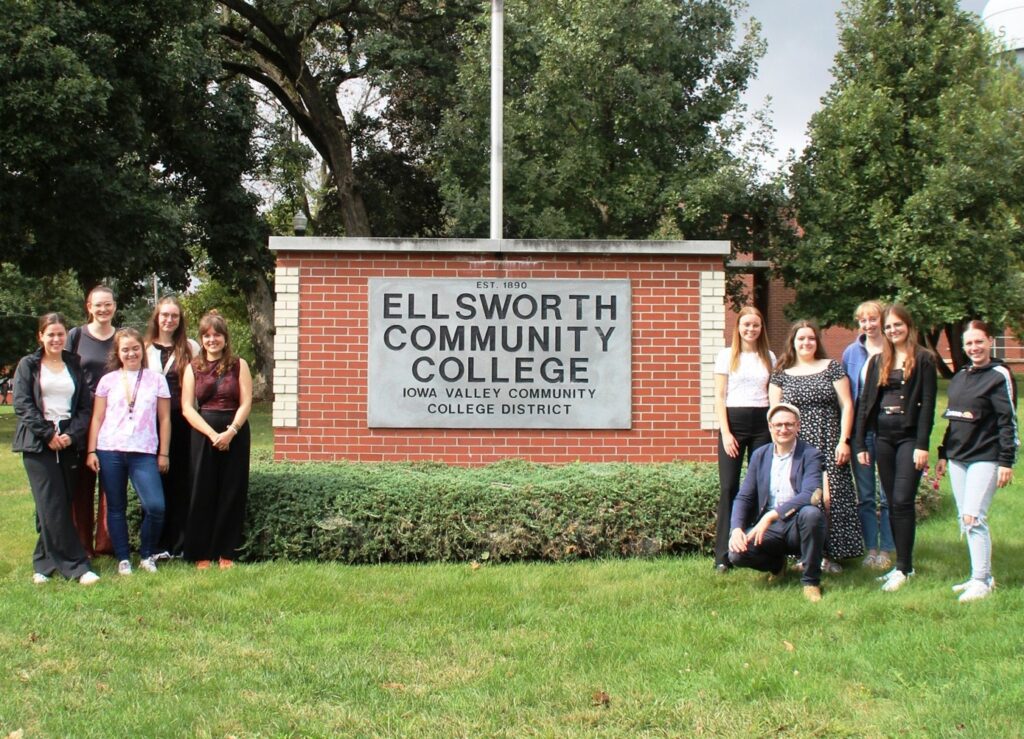
10 days, Iowa Falls, USA
Philipp, Staff Mobility Degree Program Social Work (DHSN)
My experiences during this staff mobility
The trip to our American partner college in Iowa Falls was a formative experience in many ways—both professionally and pedagogically. For me, the main goal was to facilitate a direct exchange between social work students and colleagues and students from a different cultural and educational context. It became clear in the very first days just how much such encounters can broaden horizons and break up entrenched patterns of perception. The exchange highlighted that social work in the USA—especially in rural areas—is organized differently than in Germany. Much of it is based on voluntary engagement, which reveals great warmth and lived solidarity, but at the same time, also shows structural limitations. The students were able to experience this directly and reflect on it critically.Particularly valuable was how openly and transparently our American colleagues allowed us to observe their institutions, teaching situations, and local networks. These encounters taught both the students and myself that professionalism is always context-dependent and is understood differently in various cultural frameworks. It was also remarkable how much the shared reflection within the travel group contributed to deepening our professional understanding. The students’ diverse perspectives and previous experiences led to intense discussions about professionalism, ethics, attitude, and the political mission of social work. In this way, the trip itself became a learning space that went far beyond merely getting to know another country.
My takeaway:
The benefits for teaching, research, and personal development are immense.
What did I take away professionally?
From this staff mobility, I am taking away three main insights: firstly, that the internationalization of teaching and study in social work does not come from theoretical comparisons alone, but through real encounters; secondly, that cultural irritation is an essential part of professional learning; and thirdly, that students develop extraordinary potential for self-reflection in such contexts when they are appropriately guided. The trip made it clear to me how valuable it is to integrate internationality as a space of experience into academic education. Many of the differences I observed—for example, between American pragmatism and the more theoretically grounded German social work culture—cannot be better conveyed than through direct observation. It was especially inspiring to see how students learned not to judge differences, but to understand them: they realized that you can only truly understand a country, its people, and its social work if you are willing to question your own assumptions. For my own teaching practice, I take away the understanding that such exchanges should be seen even more as a part of reflective professionalization. They offer unique opportunities to productively connect theory and practice, distance and closeness, the familiar and the unfamiliar.
My conclusion & tips
Overall, the trip was a complete success—professionally, organizationally, and personally. The close collaboration with the partner college, whose colleagues welcomed us with great openness, was particularly positive. This mutual appreciation forms the basis for a long-term, sustainable partnership. My conclusion is therefore: Staff mobilities of this kind are far more than logistical or organizational exchange formats. They are pedagogical events in which resonance, irritation, and perspective shifts become central learning moments. I can only encourage colleagues to take part in such collaborations—even if they require significant preparation. The benefits for teaching, research, and personal development are immense.
Spread the word!
Would you like to see your photos and experiences here to share with others?
Then fill in the document “My experiences”, sign the data privacy document and send them via email to auslandspraktikum@tu-dresden.de.